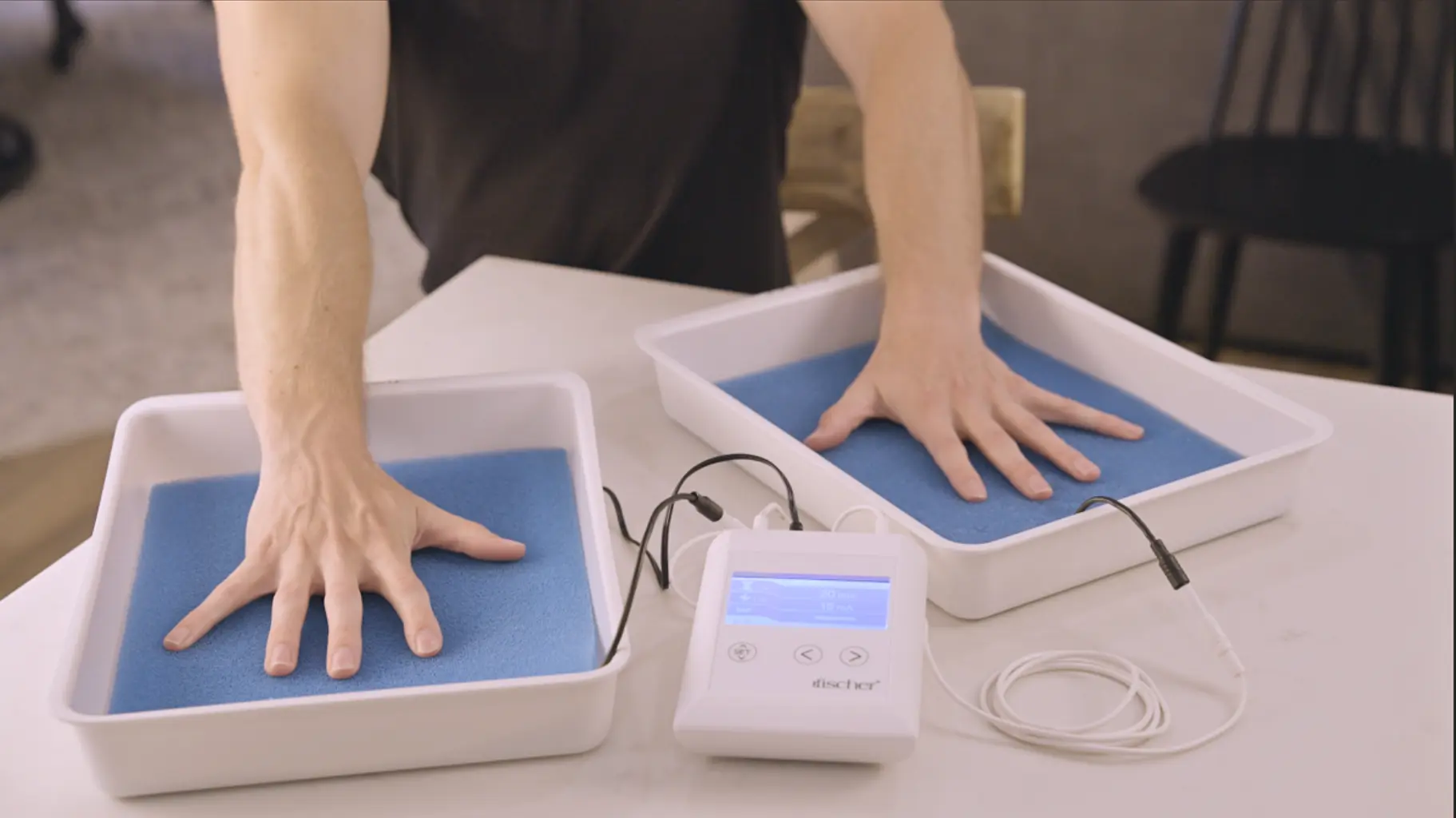Understanding the Origin Reasons of Excessive Sweating and Its Influence on Day-to-day Live
Too much sweating, additionally referred to as hyperhidrosis, is a condition that affects a considerable section of the populace, yet its underlying causes and ramifications on daily operating stay somewhat enigmatic. While it is frequently understood as a physical response to regulate body temperature, the triggers for too much sweating can vary commonly among people, incorporating not just physical elements however emotional and also psychological components. Furthermore, the impact of this problem expands beyond plain pain, frequently influencing social communications and general top quality of life. By delving into the source of hyperhidrosis and exploring its multifaceted effects, a deeper understanding of this prevalent concern can be obtained, clarifying the intricacies that people facing extreme sweating navigate daily.
Physiology of Sweat Glands
The regulation of sweat manufacturing, an essential physiological procedure, is largely controlled by the task of sweat glands distributed throughout the human body. Sweat glands are categorized into 2 main kinds: eccrine and apocrine glands.
When the body temperature level rises, either as a result of physical activity, heats, or psychological anxiety, the nerves activates the gland to produce sweat. This sweat is made up largely of water and electrolytes like sodium and chloride. The procedure of sweat manufacturing is important for keeping the body's internal temperature within a slim, optimum range, highlighting the important duty sweat glands play in human physiology.
Triggers for Excessive Sweating
In understanding the origin creates of extreme sweating, it is important to identify the triggers that can lead to this physical action. Physical effort, high temperatures, and spicy foods are additionally understood to set off excessive sweating in people susceptible to this condition.
In addition, medicines such as some antidepressants, opioids, and certain supplements can additionally function as triggers for hyperhidrosis. Understanding these triggers is essential in taking care of extreme sweating effectively - Exessive Sweating. By recognizing and dealing with the specific triggers that trigger excessive sweating in a specific, doctor can create customized therapy plans to ease this condition and boost the individual's high quality of life
Medical Conditions Associated
Related to too much sweating are various clinical conditions that can worsen this physical reaction. One usual condition is hyperhidrosis, a condition defined by abnormally enhanced sweating that surpasses the body's thermoregulatory demands. This can manifest in focal areas like the hands, soles, underarms, or face, influencing a person's lifestyle because of social shame and discomfort.
In addition, endocrine problems such as hyperthyroidism, diabetes, and menopausal hot flashes can also result in extreme sweating. Hyperthyroidism triggers an overflow of thyroid hormonal agents, speeding up metabolic rate and causing sweating. Diabetes mellitus can generate sweating episodes, specifically throughout hypoglycemic episodes when blood sugar level degrees go down also reduced. Menopausal warm flashes, associated to hormonal changes during menopause, can cause intense and sudden sweating, often accompanied by flushing and heart palpitations.
Furthermore, infections like tuberculosis, HIV, and endocarditis have been related to evening sweats, a typical symptom recognized to interfere with sleep and affect total wellness. These medical problems highlight the diverse range of underlying variables that can add to excessive sweating, demanding complete assessment and management by medical care professionals.
Psychological and Mental Factors

Effect On Social Interactions
Extreme sweating can have profound results on an individual's capacity to engage pleasantly in social interactions. The noticeable signs of sweat discolorations or wet spots on clothing can cause embarrassment and self-consciousness, triggering people to How to stop sweaty hands withdraw from social scenarios. This withdrawal can impact connections, limit social activities, and impede specialist and personal growth.

Furthermore, the stress and anxiety and self-worth issues coming from extreme sweating can influence interaction and interpersonal skills. Individuals may have a hard time to concentrate on discussions, participate in group activities, or reveal themselves confidently. This can cause sensations of seclusion and isolation, as social links become challenging to maintain.
Conclusion

While it is generally recognized as a physical feedback to manage body temperature level, the triggers for extreme sweating can vary widely among people, incorporating not just physical elements however emotional and likewise emotional elements. By diving right into the root causes of hyperhidrosis and exploring its complex impacts, a deeper understanding of this prevalent problem can be gotten, shedding light on the intricacies that individuals grappling with excessive sweating browse on a daily basis.
Physical effort, high temperatures, and spicy foods are likewise known to trigger too much sweating in people susceptible to this condition. By identifying and resolving the certain triggers that motivate too much sweating in a specific, health care providers can establish customized treatment plans to alleviate this condition and boost the individual's high quality of life.
Too much sweating can have extensive results on a person's ability to involve pleasantly in social interactions.